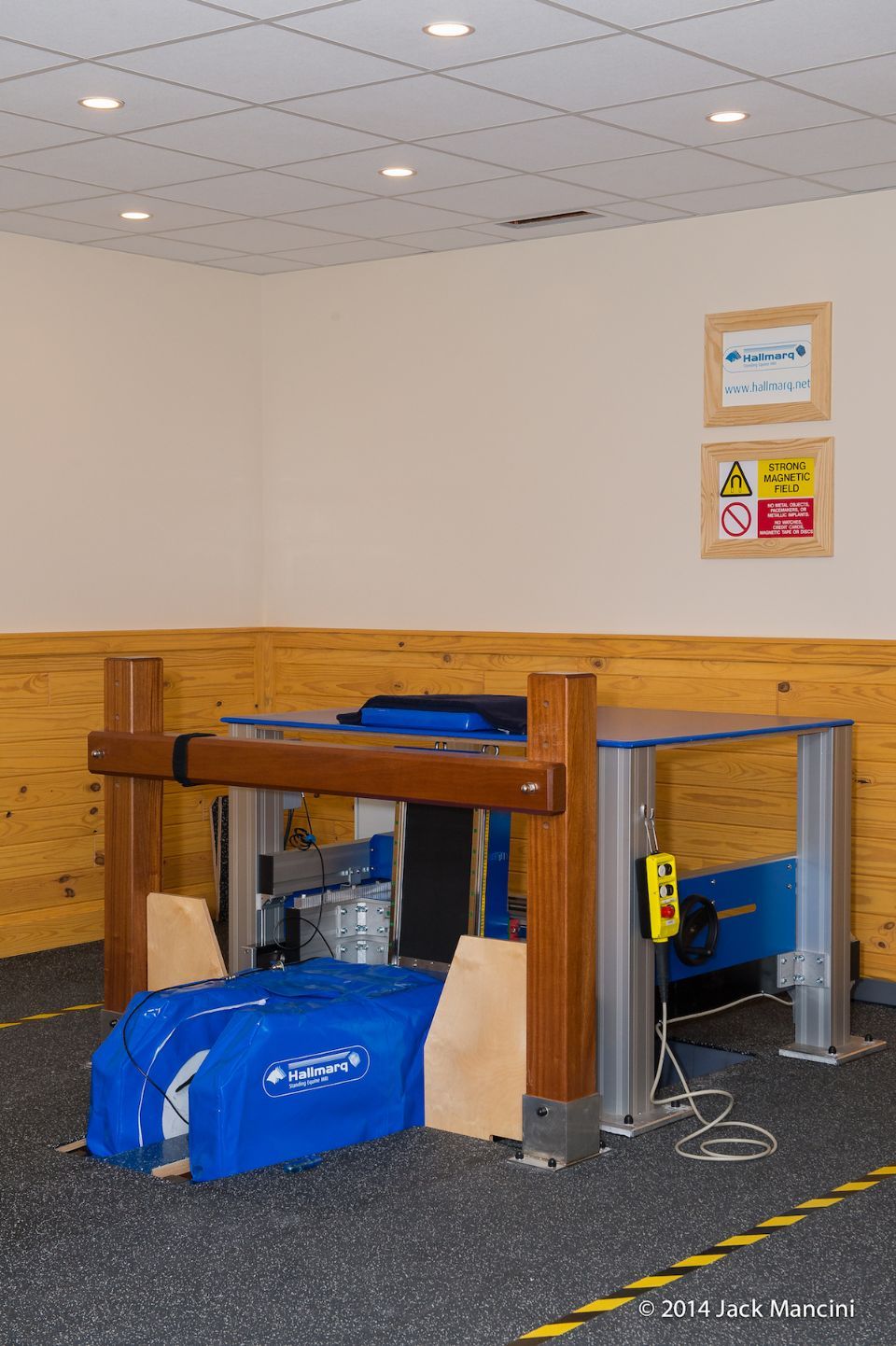Palm Beach Equine Clinic Leads the Way Through Innovation
January 27, 2016 - Wellington, FL
Photo by Mancini Photos
Photo by Mancini Photos
Photo by Mancini Photos
Photo by Mancini Photos
Photo by Mancini Photos
Palm Beach Equine Clinic takes pride in being a place for the diagnosis, treatment, and recovery of some of the world's most valued sport horses. Through innovative technology and world-class veterinarians specializing in all areas of equine medicine, Palm Beach Equine Clinic President Dr. Scott Swerdlin has grown a practice akin to human-treating facilities.
Horse Health of the Future
According to Dr. Swerdlin, the latest in diagnostic and treatment equipment drives the success of Palm Beach Equine Clinic.
“The equipment must come first. If you don't have the equipment, you can’t get the specialists,” he stated.
It is his goal to have Palm Beach Clinic be the most advanced referral center in the country and with that goal in mind, he took a giant leap into the future. With pragmatism and cost effectiveness a priority, Dr. Swerdlin hopes to provide swift, correct, and advanced services in order help each horse-owner team accomplish their individual goals.
One piece of equipment that nods to Swerdlin's plans is the latest nuclear scintigraphy (bone scan) camera, a non-invasive imaging technique that assists with diagnosing difficult lameness cases. The camera has the ability to move around the horse, making the process faster and less stressful for the patient.
“With this advanced technology, we are able to do hundreds of bone scans each year,” said Dr. Swerdlin.
In addition, Palm Beach Equine Clinic is home to a standing MRI machine, which is at the peak of diagnostic technology in both animals and humans, according to Dr. Swerdlin. Changing the way veterinarians approach the evaluation of lameness in horses, the standing MRI is a quick, low risk option used to diagnose thoroughly and treat more effectively.
The large room that houses the standing MRI machine was designed specifically to keep a horse at ease. By changing the walls from reflective metal to wood, and installing dimming overhead lights to set a calming mood, Palm Beach Equine Clinic has helped create an atmosphere safer and more enjoyable for the horses.
While the end results are rewarding, it goes without saying that advanced technology comes with a price tag. But for Dr. Swerdlin, the investment is well worth the effort.
“For a lot of time it wasn't economically viable, but I had this vision that one day it would be and we would be successfully using the latest technology,” he said. “Slowly but surely, we built and invested in equipment and personnel knowing that one day it would start paying off. That has happened over the last couple years. What makes it worthwhile is knowing we are doing the very best we can for the horse and knowing we have the very best equipment for our specialists.”
Unending Talent
First came the equipment and then came the specialist. Once Palm Beach Equine Clinic was leading the way in technology, it began attracting the best in veterinary talent. With a board-certified radiologist Dr. Sarah Puchalski, three boarded surgeons Dr. Jorge Gomez, Dr. Weston Davis, and Dr. Robert Brusie, board-certified internal medicine specialist Dr. Peter Heidman, as well as ophthalmologists, a reproductive specialist, and acupuncturists, and many sport horse lameness specialists, Palm Beach Equine Clinic is able to provide care in all areas of veterinary medicine.
“What we have tried to do is provide a vet practice with a full range of specialists,” said Dr. Swerdlin. “We are one of the few clinics in the country to have a boarded radiologist on staff, which permits us to have an expert evaluating Nuclear Scintigraphy scans, MRI scans, Radiology cases and high-definition Ultrasonography of abdomens, hearts, and more.”
After four years of undergraduate study, four years of vet school, a year-long internship, three to four years of residency and a year of practicing, veterinarians sit for the most rigid examinations in the world to become board-certified.
“These vets are the top one percent. We are fortunate to have the best in the world collaborating on our patients,” said Dr. Swerdlin of his staff. “Clients may only see one vet, but three or four were involved in the process in helping their horse.”
More to Come
While seeming to have achieved excellence, Palm Beach Equine Clinic isn't done yet. Plans are currently underway to expand the physical facility to add an additional 4,000 square feet of air-conditioned examination areas, an additional surgical suite and recovery stall, as well as climate-controlled isolation quarantine stalls.
With more space, Dr. Swerdlin already has his eye on arming radiologist Dr. Puchalski with the first equine Computed Tomography service (CT scans), adding to her diagnostic imaging services.
While continuing to making advancements, Palm Beach Equine has become a place where vets can troubleshoot, diagnose, treat, and provide recovery all without a horse ever leaving the clinic.
“With the value of these horses, it's important that we have the most thorough vet and technological support,” concluded Dr. Swerdlin. “We don't want to think we know what the problem is; we want to know the problem and what the solution is.”
For those with horses at or near the Palm Beach International Equestrian Center, the Palm Beach Equine Clinic WEF Annex Office is open Tuesday-Sunday and available for any questions and services. Stop by the office, located next to the WEF Stabling Office and Exhibitor Entrance, to meet with a veterinarian.
Palm Beach Equine Clinic provides experience, knowledge, availability, and the very best care for the horses of Wellington. Have them be a part of your team! To find out more, please visit www.EquineClinic.com or call 561-793-1599. “Like” them on Facebook to follow along on what happens in Wellington and more, and get news from their Twitter!







